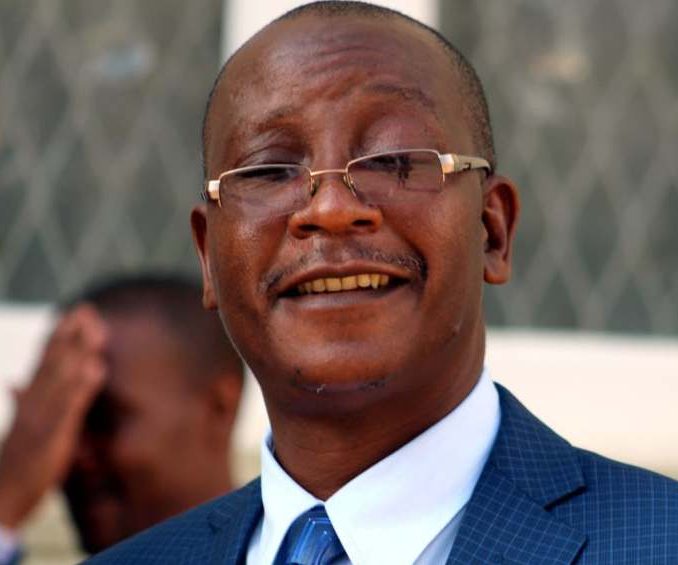
MELODY CHIKONO THE GOVERNMENT has suspended the registration of trusts and Private Voluntary Organisations (PVOs) in a move seen as part of a political ploy to restrict local participation of non-governmental organisations (NGOs) and non-profits.
This follows the gazetting of the Private Voluntary Organisations Amendment Bill in November 2021.
The bill seeks to amend the PVO Act.
The bill, which regulates the operations of trusts, associations and all organisations providing charitable services, everyone who benefits and supports their work, seeks to prevent, among other things, Civil Society Organisations (CSO) from undertaking political lobbying.
The CSOs have, however, raised concern that the suggested amendments will restrict their work and violate people’s rights. The CSOs say the government wants to silence organisations that stand up for human rights.
NGOs and non-profits are registered either as PVO or as a trust under the Public Service, Labour and Social Welfare ministry while trusts are registered under the Justice ministry through the Deeds Office.
In its investigation, the Zimbabwe Independent crew, posing as prospective NGO operators, visited the Deeds Office where they were told the registration process had been suspended.
An official manning the Deeds Office said: “We are not registering trusts at the moment, we are only issuing deeds for houses. Even PVOs are not being registered at the moment. We received a directive two months ago to stop registering NGOs until further notice.”
- Chamisa under fire over US$120K donation
- Mavhunga puts DeMbare into Chibuku quarterfinals
- Pension funds bet on Cabora Bassa oilfields
- Councils defy govt fire tender directive
Keep Reading
Company registration representatives who spoke to the Independent said the move to block NGO registration was politically motivated as the country prepares for elections in 2023.
“We are not processing trusts at the moment. Government directed the registrar to stop due to political reasons. I’m not sure when we will resume,” the representative said.
“It could be after next year as we understand that government is trying to reduce opposition funding through these organisations.”
Commenting on registering of trusts, Justice, Legal and Parliamentary Affairs minister Ziyambi Ziyambi said there was no such directive as family trusts were still being registered.
“I’m not aware. Why would I stop anyone to register his family trust? If you want to register a company, register it under the relative legal instrument. You can’t register a trust so that you use it to run a company,” he said.
“The problem is that people are abusing family trusts to do business. We have not refused anyone to register for the purpose it should be but those that want to abuse the system then move around saying they have been barred. There is no such directive if you want to register a family trust”.
Public Service, Labour and Social Welfare minister Paul Mavima was not available for comment and he did not respond to questions sent via WhatsApp.
Among other things, the proposed law would have the effect of criminalising the work of CSOs and NGOs in Zimbabwe by proposing harsh penalties, including jail time of up to one year for NGO related offences.
CSOs say the Bill also gives the government and the minister responsible for NGOs and trusts excessive power to interfere with the operations of these bodies.
“It further gives the responsible minister the power to make an application to the High Court to appoint one or more persons of his/her choice as trustees to run the affairs of an organisation for a period not exceeding 60 days — an excessive intrusion in the administration of PVOs,” CSOs said end of January in a letter to Speaker of National Assembly of Zimbabwe Jacob Mudenda.
In Zimbabwe, NGOs have contributed towards employment creation, tax revenues mobilisation, foreign currency generation, provision of social protection and humanitarian assistance, growth in the local tourism sector as well as overall economic growth.
Critics of the proposed law say the PVO Amendment Bill violates the Constitution.
However, the government argues that the changes are meant to plug external interference in Zimbabwe’s domestic political affairs.
Government proposed the PVO Amendment Bill to comply with the Financial Action Task Force (FATF) recommendations to align the country’s laws. The recommendations require the laws and regulations that govern non-profit organisations so that they are not abused for the finance of terrorism.
CSOs view this as government using lawfare to curtail democracy.
Zimbabwe already has the Money Laundering and Proceeds of Crime Act, the Bank Use Promotion Act, the Suppression of Foreign and International Terrorism Act, and the Criminal Law Code to curb illicit financial flows.











